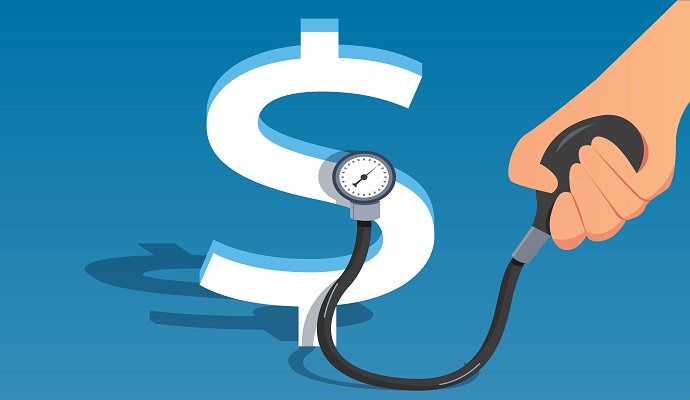Inpatient No Longer King as Hospital Outpatient Revenue Grows
The gap between inpatient and hospital outpatient revenue narrowed, with outpatient dollars accounting for nearly half of total hospital revenue by 2018, a new report shows.

Source: Getty Images
- “Heads in beds” is no longer the motto for hospitals, which are seeing their hospital outpatient revenue nearly equal inpatient revenue, according to a new report from the Deloitte Center for Health Solutions.
Their analysis of hospital financial data of Medicare-certified organizations from 2011 through 2018 showed that the gap between inpatient and outpatient revenue narrowed, with hospital outpatient revenue growing at a higher compounded annual rate of 9 percent during the period.
Inpatient revenue grew by just 6 percent at the same time, the report showed.
As a result of rapid growth, the aggregate share of outpatient services in total hospital revenue increased from 28 percent in 1994 to nearly half (48 percent) by 2018. That percentage is also likely to surpass the halfway point in coming years, researchers added.
“Our findings are a call to action for health systems to invest in care delivery in outpatient, home, virtual, and other alternative settings,” they wrote in the report. “Instead of focusing on capturing more hospital inpatients, health systems should start planning for a future where buildings full of beds will likely be a memory. Organizations not yet meaningfully committed to value-based care and still focused on generating more inpatient hospital services may soon find themselves struggling.”
Value-based care is the industry’s efforts to shift from volume by rewarding providers who deliver the highest quality care at the lowest possible price. In many cases, that means shifting patients toward outpatient, virtual, and other lower-cost settings.
Hospitals have already started to shift their care to the outpatient setting due to value-based care contracts. A previous study by the Deloitte Center for Health Solutions found that hospitals with greater revenue from quality- and value-based contracts provided more outpatient services than other hospitals.
In this report, health system executives who were leading their organizations’ efforts on this front, including population health executives, chief medical officers, chief transformation officers, presidents, strategy executives, and ambulatory executives reiterated the need to boost outpatient services for value-based care success.
In interviews with researchers, the executives agree that pressure from Medicare, Medicaid, and commercial payers to take on value-based contracts contributed to the growth in hospital outpatient revenue. The acquisition of physician practices to support the hospital’s position in the market, including their ability to deliver on value-based contracts, also added to hospital outpatient revenue during the period.
In addition to value-based care, the report showed how consumerism and technological advancements are pushing hospitals to invest in more outpatient services.
Health system executives stated that consumers are increasingly seeking out outpatient settings because they are more convenient than the traditional hospital setting and have lower out-of-pocket costs.
But much of the growth in hospital outpatient revenue is being led by an increase in the volume and scope of outpatient services due to technology advances in clinical procedures, the report stressed.
In interviews with researchers, health system executives said clinical technological advances are prompting their organizations to shift their focus to the outpatient setting. For example, clinical advances have made the respondents comfortable performing certain orthopedic and cardiac procedures in the outpatient setting. Monitoring capabilities and regulations also caused many to reconsider what can and should be done in the hospital.
Virtual health and consumer engagement platforms also influenced the provision of hospital outpatient care. These technologies have the potential to better engage consumers and give them easier access to care all while preventing unnecessary inpatient and emergency department utilization, health system executives agreed.
However, data sharing, interoperability, and analytics will all have to improve for hospitals to realize the full benefits of using technology to not only bolster outpatient care, but also value-based care results. Interviewed executives stated that data and access are critical areas of focus to support better business and clinical decisions, but better data flow across all new non-inpatient entities is still needed.
The report also stressed the need for “thoughtful, courageous, and brave” leadership. Hospital leaders have to be willing to “willing to cannibalize hospital revenue and focus on the organization’s overall bottom line instead of individual service line profit and loss (P&Ls),” researchers explained.
This means hospital leaders may need to call on others in the field (e.g., retail pharmacies, payers, community service providers) and experts who do not run inpatient businesses, as well as their own physicians and consumers. The input from these stakeholders is critical to navigating the shift in how hospitals do business from now on.
